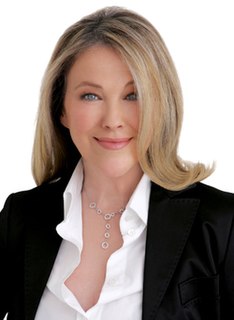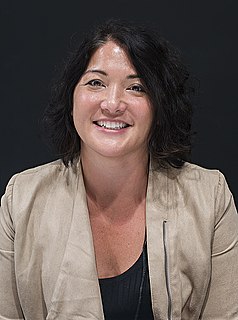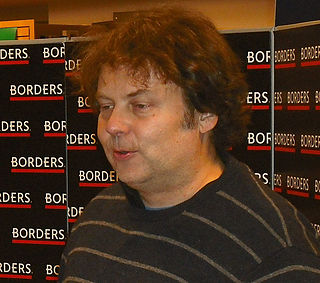A Quote by Catherine O'Hara
When you're writing, you're putting thought into what you want to express, and then you come up with it - it comes to you. When you're improvising, it's the same thing. You're writing. You just say it out loud right then, instead of saying, 'You think this might work?'
Related Quotes
I hate being called lazy, so when everybody gets up at half seven in the morning, I'm up at the same time. Everyone goes to work and I'll do a few hours of writing, then I'll mess about for a bit and come back to it. By the time I go home I'm done. I think it's really good to keep that kind of a routine with writing. I find that when I don't do that, it's really hard to get back into that headspace of writing.
The problem is no longer getting people to express themselves, but providing little gaps of solitude and silence in which they might eventually find something to say. Repressive forces don’t stop people from expressing themselves, but rather, force them to express themselves. What a relief to have nothing to say, the right to say nothing, because only then is there a chance of framing the rare, or ever rarer, the thing that might be worth saying.
It's kind of like being a writer in the sense that you always hear other writers say, 'Well, the best way to start writing is to just start writing.' The same goes for improvisation. You want to start improvising, just start playing notes. And the more you do that, the more comfortable - or not comfortable - but I guess how you're able to adapt to situations. You become more familiar with your instrument. As soon as you have a musical thought, you can go ahead and add to that musical thought and know your way around.
Something I always tell students is, when you're writing something, you want to write the first draft and you want it to come out easily in the beginning. If you're afraid to say what you really have to say, you stammer. [...] You're judging yourself, you know, thinking about your listener. You're not thinking about what you're saying. And that same thing happens when you write.
When I'm writing, especially when I'm writing in first person, I don't think about the characterization, or how they are going to express themselves, I just express my own approach to these things. I think most writers can never divorce themselves from their private lives and personas; they are the ones that are writing. And the more they remove themselves from their own persona, the more, perhaps, mechanical the work becomes.
I think I've always had an activist stance, yet at the same time, the other side of me - and this is where some people just don't get it, or they'd prefer it if the work was a lot uglier, a lot louder - I have this personality where I just want to put something out that's a fact and then let you interpret it. It's almost as if you might barely notice it, you might walk right by it, but you have to pay attention.




































